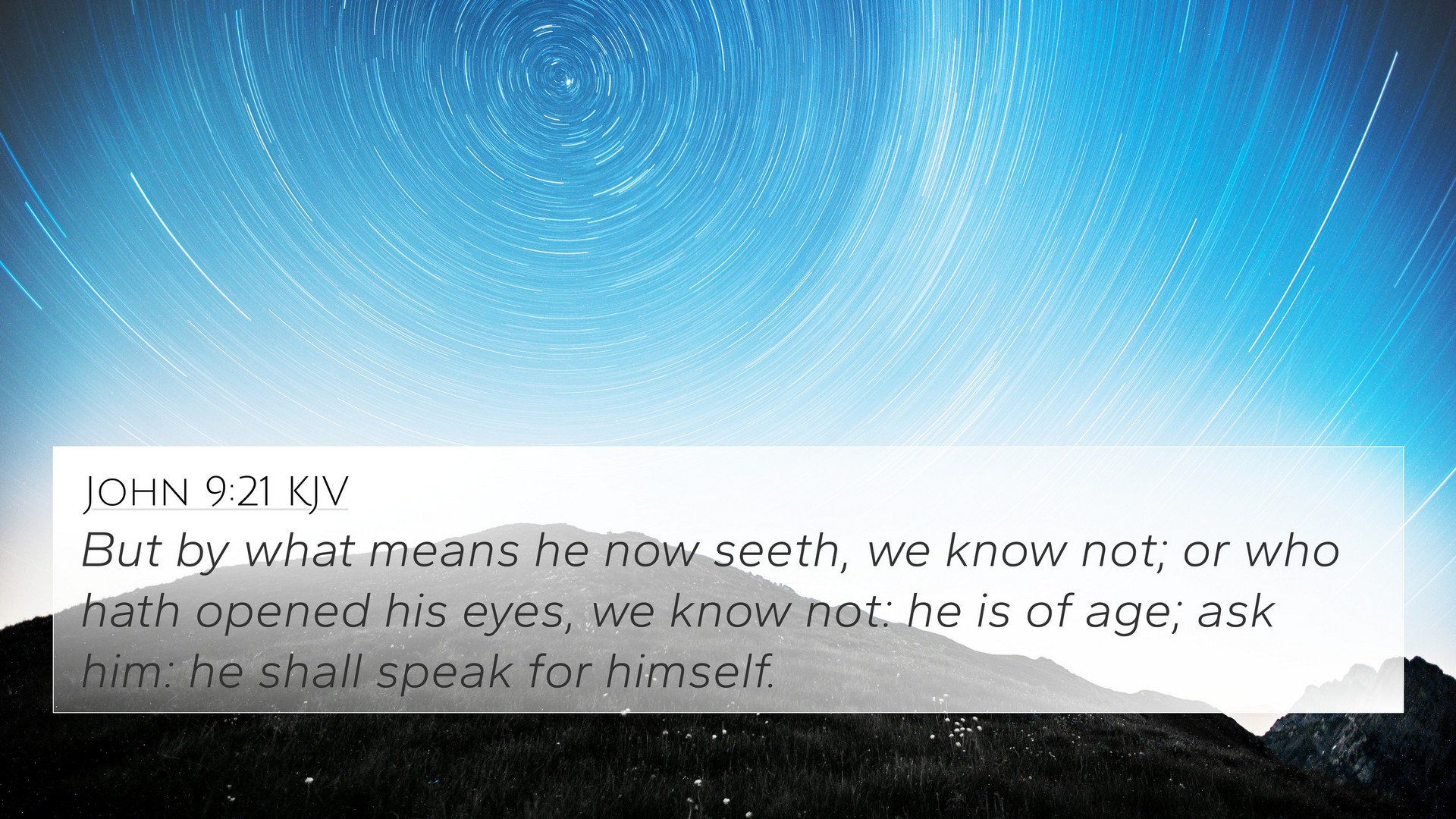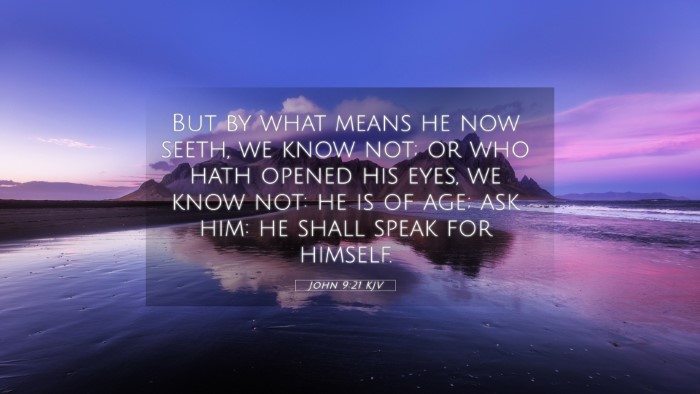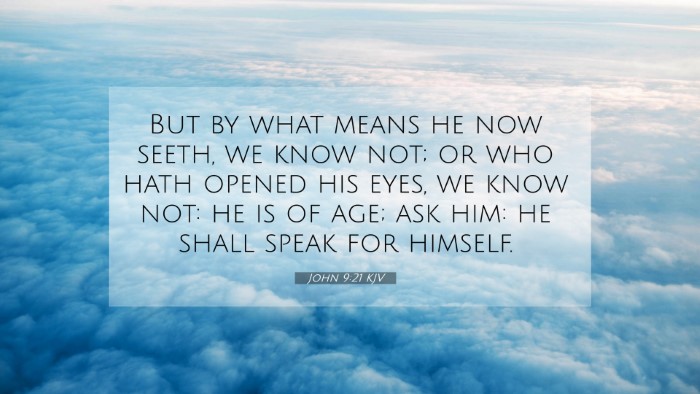Understanding John 9:21
John 9:21 reads: "But by what means he now seeth, we know not; or who hath opened his eyes, we know not; he is of age; ask him: he shall speak for himself."
Summary of John 9:21
This verse occurs in the context of the healing of a man born blind. After the miracle, the man’s parents are interrogated by the religious leaders about the healing. They affirm that their son was born blind but hesitate to provide details about the miraculous event because they fear repercussions. The verse reflects themes of faith, fear, and the struggle of acknowledging truth.
Bible Verse Cross-References
- John 9:1-7 - The Account of the Healing of the Blind Man
- Exodus 4:10-11 - God's Power in Enabling Speech
- Matthew 10:28 - Not Fearful of Those Who Can Harm the Body
- Luke 12:8-12 - The Holy Spirit Will Teach You What to Say
- Acts 4:20 - Speaking About What We Have Seen and Heard
- John 9:24-25 - The Affirmation of Healing by the Blind Man
- 2 Corinthians 4:2 - Renouncing Shameful Ways
- Proverbs 29:25 - Fear of Man Brings a Snare
- John 7:13 - Fear of Speaking About Jesus
- 1 Peter 3:13-16 - Prepared to Give an Answer for Our Hope
Interpretation Insights
John 9:21 emphasizes the conflict between faith and fear of societal retribution. The parents of the formerly blind man demonstrate how societal pressures can hinder individuals from fully confessing their beliefs or experiences. Matthew Henry noted that the parents’ acknowledgment of their son’s healing reveals a divide between personal experience and public declaration, showcasing the challenges early Christians faced in proclaiming their faith amidst persecution.
Albert Barnes elaborates on the implications of the parents' statement. By declaring their son "of age," they defer the religious leaders to ask the man directly, suggesting his autonomy in declaring the miracle. This denotes an understanding of personal testimony’s importance in faith, as emphasized in Acts 4:20. Adam Clarke adds that the parents were likely fearful due to previous experiences of excommunication from the synagogue for confessing belief in Jesus, pointing to how community repercussions can stifle open testimony.
Connecting Themes
The passage illustrates the tension between societal expectations and individual belief, a recurring theme in the Gospels. The interplay of fear and faith invites readers to explore their responses to divine encounters. By connecting this verse to others such as Matthew 10:28 and Luke 12:8-12, we gain insights into the biblical call to courageously proclaim one's faith regardless of circumstances.
Additionally, the concept of personal testimony in faith is explored in related passages like 1 Peter 3:13-16, emphasizing the preparation involved in defending one’s beliefs. Thus, John 9:21 can be positioned within broader scriptural dialogues regarding the challenges of expression in the face of adversity.
Practical Application
For those studying this verse, consider the following:
- Reflect on moments when societal pressures may have influenced your expression of faith.
- Engage in discussions about the importance of personal testimony in a faith community.
- Explore biblical resources and cross-reference tools to deepen your understanding of how various scriptures illuminate this theme.
- Discuss with a group how to courageously share personal experiences of faith, drawing from the wisdom of scriptural examples.
Conclusion
John 9:21 serves as a poignant reminder of the complexities of faith, the importance of personal testimony, and the challenges many face in declaring their beliefs amid societal pressures. By exploring this verse in connection with others, we can cultivate a deeper understanding of the interconnectedness of scripture and the transformative power of faith.


